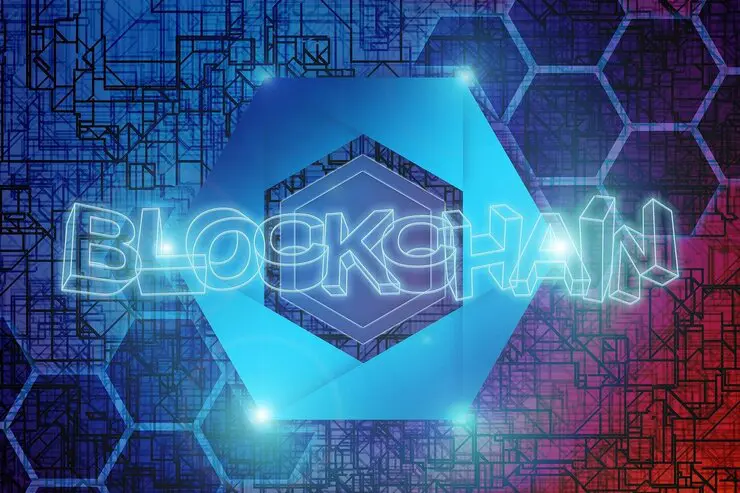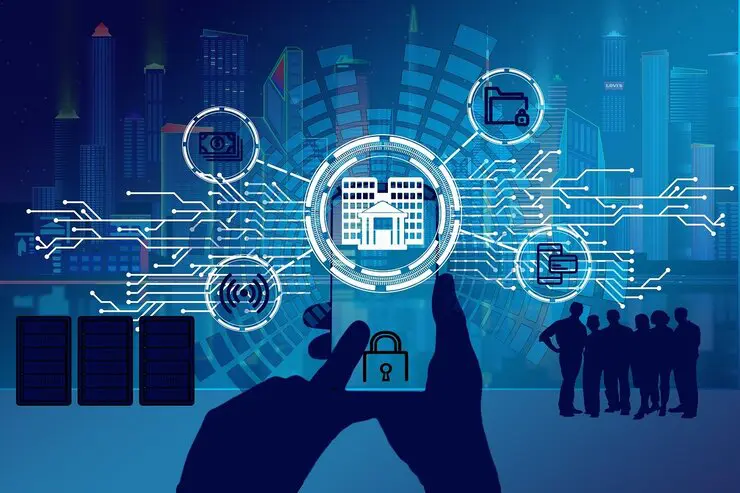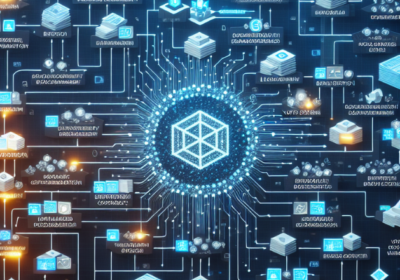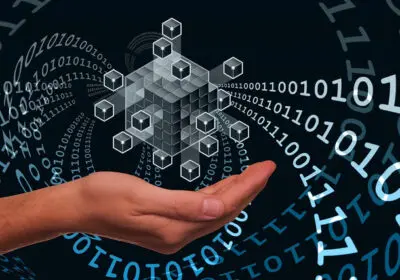How To Become A Blockchain Developer
In the dynamic realm of technology, blockchain has emerged as a transformative force, revolutionizing industries from finance to supply chain management.
As the demand for blockchain expertise surges, more professionals are aspiring to transition into this domain.
In “How To Become A Blockchain Developer,” we provide a comprehensive roadmap for aspiring developers, covering essential skills, educational pathways, and practical steps to take in order to excel in this burgeoning field.
Our guide aims to demystify the process, offering valuable insights and actionable advice to navigate the complexities of blockchain development efficiently and effectively.
Are you intrigued by the possibilities of blockchain technology and wondering how to become a blockchain developer?
If so, you’re in the right place. In this comprehensive guide, we will explore the steps needed to break into this exciting field.
How To Become A Blockchain Developer Video
Understanding Blockchain Technology
What is Blockchain?
Before diving into the nitty-gritty of becoming a blockchain developer, let’s first grasp what blockchain technology is.
Blockchain is a decentralized ledger technology that enables multiple participants to maintain a shared and immutable record of transactions.
These transactions are stored in blocks that are cryptographically linked together, forming a chain.
The decentralized nature of blockchain eliminates the need for intermediaries and enhances security.
Importance of Blockchain
Blockchain technology has made significant strides in various industries.
From finance and supply chain management to healthcare and real estate, blockchain promises to revolutionize how data is stored, verified, and shared.
Its scalability, transparency, and security are key features that are driving widespread adoption.
Why Become a Blockchain Developer?
Surge in Demand
The demand for skilled blockchain developers is skyrocketing.
As more organizations across diverse sectors recognize the potential of blockchain, they are actively seeking experts to help implement and manage blockchain solutions.
This surge in demand translates into abundant job opportunities and lucrative salaries.
Lucrative Salaries
Blockchain developers are among the highest-paid professionals in the tech industry.
According to recent surveys, the average salary for a blockchain developer ranges between $75,000 to $200,000 annually, depending on experience and location.
Career Growth
The blockchain industry is still in its nascent stages, providing ample opportunities for career growth.
As the technology advances, blockchain developers can advance their careers by specializing in various aspects such as smart contracts, cryptographic algorithms, and blockchain architecture.

Prerequisite Skills and Knowledge
Programming Languages
To become a blockchain developer, proficiency in specific programming languages is essential.
Here are the programming languages you should focus on:
| Language | Use Case |
|---|---|
| Solidity | Smart contract development on Ethereum |
| JavaScript | Client-side and server-side scripting, including frameworks like Node.js |
| Python | Versatile for both blockchain development and data science |
| C++ | Blockchain core development and high-performance applications |
| Go | Blockchain solutions concurrent and system programming |
Understanding Cryptography
A solid grasp of cryptographic principles is vital for blockchain development.
Cryptography ensures the security and integrity of blockchain transactions. Important concepts include:
- Hash Functions (SHA-256, Keccak-256)
- Public-Key Cryptography
- Digital Signatures
- Zero-Knowledge Proofs
Data Structures and Algorithms
Understanding data structures and algorithms is crucial for optimizing blockchain solutions.
Key data structures include Merkle trees, linked lists, and directed acyclic graphs (DAGs).
Distributed Systems and Networking
Blockchain operates on a decentralized network of nodes.
Knowledge of distributed computing, consensus algorithms (like Proof of Work and Proof of Stake), and peer-to-peer networking is essential.
Educational Pathways
Formal Education
A degree in Computer Science, Information Technology, or related fields serves as a strong foundation for a career in blockchain development.
These programs typically cover essential subjects like programming, data structures, algorithms, and computer networks.
Online Courses and Certifications
Several online platforms offer specialized courses and certifications in blockchain technology.
Some popular options include:
- Coursera: Offers courses from top universities like Princeton and Stanford.
- edX: Collaborates with universities and institutions to provide comprehensive blockchain courses.
- Udemy: Provides affordable courses ranging from beginner to advanced levels.
- Blockchain Council: Offers specialized certifications like Certified Blockchain Developer (CBD) and Certified Smart Contract Developer (CSCD).
Bootcamps and Workshops
Coding bootcamps and blockchain workshops provide immersive training.
These programs are short-term, intensive, and focus on practical skills. Some reputable bootcamps include:
- Blockchain Academy
- Consensys Academy
- Chainshot

Practical Experience
Building Projects
Hands-on experience is invaluable. Start by building simple blockchain applications or smart contracts.
GitHub is an excellent platform to showcase your projects and demonstrate your skills to potential employers.
Internships and Apprenticeships
Internships and apprenticeships provide real-world experience and industry insight.
They offer opportunities to work on live projects, network with professionals, and receive mentorship.
Contributing to Open Source Projects
Open source projects are a great way to contribute to the blockchain community while gaining experience.
Platforms like GitHub and GitLab host numerous blockchain projects that welcome contributions.
Specializations within Blockchain Development
Smart Contract Development
Smart contracts are self-executing contracts with the terms directly written into code.
Solidity is the primary language for developing smart contracts on platforms like Ethereum.
Proficiency in Solidity and the Truffle Suite (a development framework for Ethereum) is essential.
Blockchain Architecture
This specialization focuses on designing and implementing the architecture of blockchain systems.
It involves decisions on consensus algorithms, network interfaces, and data storage structures.
Cryptography Engineer
Cryptography engineers develop cryptographic algorithms used in blockchain applications.
This role requires deep expertise in cryptographic techniques and a strong mathematics background.
Blockchain Security
Specialists in blockchain security identify and mitigate vulnerabilities within blockchain systems.
They ensure the security and integrity of blockchain applications by conducting security audits and writing secure code.
Tools and Frameworks
Development Tools
Several development tools are widely used in blockchain development:
| Tool | Description |
|---|---|
| Remix | An online IDE for Ethereum smart contract development |
| Ganache | A personal blockchain for Ethereum development and testing |
| Truffle | A development environment, testing framework, and asset pipeline |
| MetaMask | A browser extension for Ethereum transactions and authentication |
Blockchain Platforms
Various blockchain platforms offer different features and capabilities. Some commonly used platforms include:
| Platform | Description |
|---|---|
| Ethereum | A decentralized platform for smart contracts and DApps |
| Hyperledger Fabric | A permissioned blockchain framework for enterprise solutions |
| Binance Smart Chain | A blockchain platform running parallel to Binance Chain |
| Cardano | A platform focused on security, sustainability, and interoperability |
Collaboration and Version Control
Proficiency in version control systems like Git and collaborative platforms like GitHub and GitLab is crucial for blockchain development.
These tools facilitate code management, versioning, and collaboration within development teams.
Testing Tools
Testing is a critical phase in blockchain development.
It ensures the functionality and security of blockchain applications. Common testing tools include:
| Tool | Description |
|---|---|
| Mocha | A JavaScript test framework for Node.js programs |
| Chai | An assertion library for Node.js and browser-based testing |
| Jest | A testing framework for JavaScript, useful for testing smart contracts |
| MythX | A security analysis tool for Ethereum smart contracts |
Building a Professional Network
Attending Conferences and Meetups
Networking is crucial in the blockchain community.
Attend industry conferences, meetups, and hackathons to connect with professionals, stay updated with trends, and learn from experts.
Joining Blockchain Communities
Become a member of blockchain communities on platforms like LinkedIn, Reddit, and Telegram.
Participate in discussions, ask questions, and share knowledge to build your reputation and connections.

Creating a Blockchain Portfolio
Showcase Your Projects
A strong portfolio showcases your skills and practical experience.
Include detailed descriptions, source code, and live demos of your projects.
Blogging and Writing
Share your knowledge and insights through blogs, articles, or tutorials.
Platforms like Medium and Dev.to are excellent for reaching a broad audience and establishing your expertise.
GitHub Profile
Keep your GitHub profile active and updated.
Potential employers and collaborators often review GitHub profiles to assess coding skills and project contributions.
Preparing for Job Applications
Resume and Cover Letter
Craft a concise and focused resume highlighting your skills, experience, and projects related to blockchain development.
Tailor your cover letter to emphasize your passion for blockchain and relevant accomplishments.
Job Boards and Recruitment Sites
Leverage job boards and recruitment sites specific to blockchain and technology.
Popular platforms include:
- Crypto Jobs List
- AngelList
Interview Preparation
Prepare thoroughly for technical interviews.
Practice coding challenges related to blockchain and review fundamental concepts.
Be ready to discuss your projects, problem-solving approaches, and experience with tools and frameworks.
Keeping Abreast of Industry Trends
Continuous Learning
Blockchain technology is rapidly evolving.
Stay updated with the latest developments through online courses, webinars, and industry publications.
Research Papers and Whitepapers
Reading research papers and whitepapers by influential thought leaders provides in-depth knowledge and insights into emerging trends and innovations.
Podcasts and Webinars
Tune into podcasts and webinars to hear from experts and stay informed about the latest trends and challenges in the blockchain industry.
Ethical and Legal Considerations
Understanding Regulations
The regulatory landscape for blockchain and cryptocurrencies is continuously changing.
Stay informed about relevant regulations and compliances to ensure your projects adhere to legal standards.
Ethical Considerations
Blockchain developers have a responsibility to consider the ethical implications of their work.
Focus on creating transparent, secure, and efficient solutions while protecting user privacy and data integrity.
Future Prospects and Opportunities
Emerging Trends
Stay ahead of emerging trends such as decentralized finance (DeFi), non-fungible tokens (NFTs), and blockchain interoperability.
These areas offer immense growth potential and opportunities for innovation.
Career Advancement
With experience and expertise, blockchain developers can advance to roles such as Blockchain Architect, Lead Developer, or Chief Technology Officer (CTO).
How To Become A Blockchain Developer Conclusion
How To Become A Blockchain Developer: becoming a blockchain developer is a rewarding and challenging journey.
It requires a blend of technical skills, practical experience, and continuous learning.
By following the steps outlined in this guide, we can embark on a successful career in blockchain development, contributing to the innovative solutions that are shaping the future.
Embark on this path with curiosity, dedication, and a passion for driving change through blockchain technology.
The opportunities are vast, and the potential for growth is limitless.
Happy coding!







